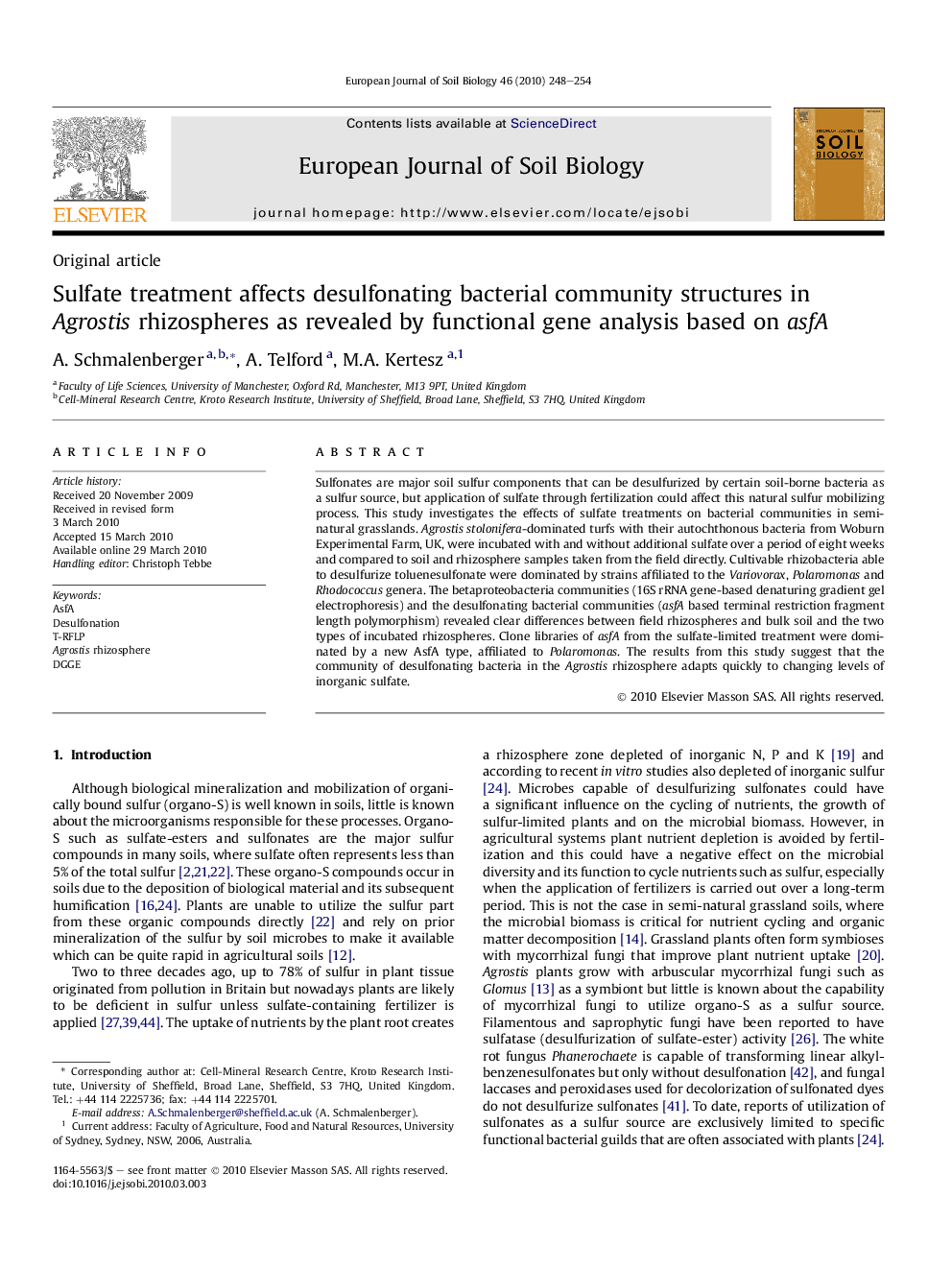| Article ID | Journal | Published Year | Pages | File Type |
|---|---|---|---|---|
| 4392127 | European Journal of Soil Biology | 2010 | 7 Pages |
Sulfonates are major soil sulfur components that can be desulfurized by certain soil-borne bacteria as a sulfur source, but application of sulfate through fertilization could affect this natural sulfur mobilizing process. This study investigates the effects of sulfate treatments on bacterial communities in semi-natural grasslands. Agrostis stolonifera-dominated turfs with their autochthonous bacteria from Woburn Experimental Farm, UK, were incubated with and without additional sulfate over a period of eight weeks and compared to soil and rhizosphere samples taken from the field directly. Cultivable rhizobacteria able to desulfurize toluenesulfonate were dominated by strains affiliated to the Variovorax, Polaromonas and Rhodococcus genera. The betaproteobacteria communities (16S rRNA gene-based denaturing gradient gel electrophoresis) and the desulfonating bacterial communities (asfA based terminal restriction fragment length polymorphism) revealed clear differences between field rhizospheres and bulk soil and the two types of incubated rhizospheres. Clone libraries of asfA from the sulfate-limited treatment were dominated by a new AsfA type, affiliated to Polaromonas. The results from this study suggest that the community of desulfonating bacteria in the Agrostis rhizosphere adapts quickly to changing levels of inorganic sulfate.
